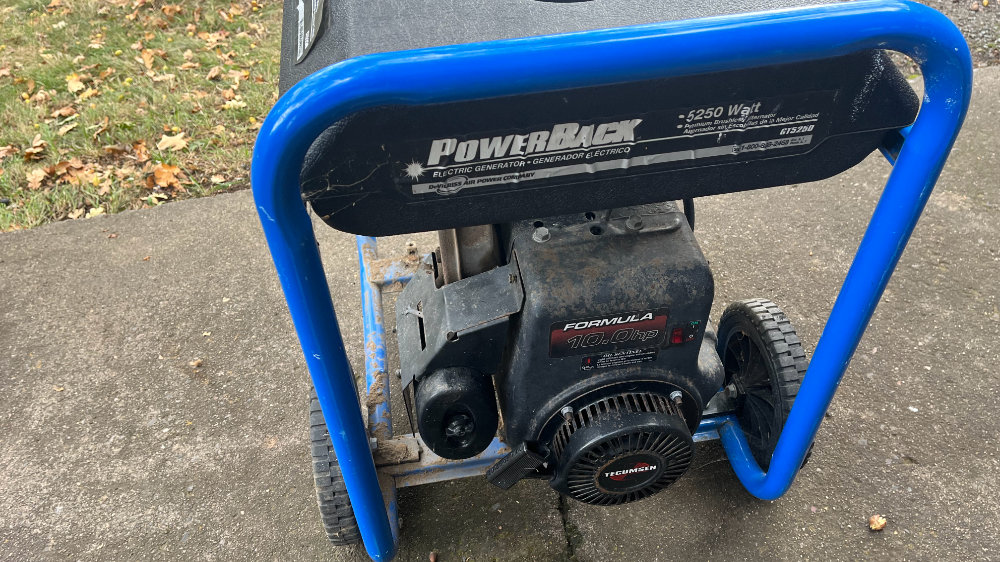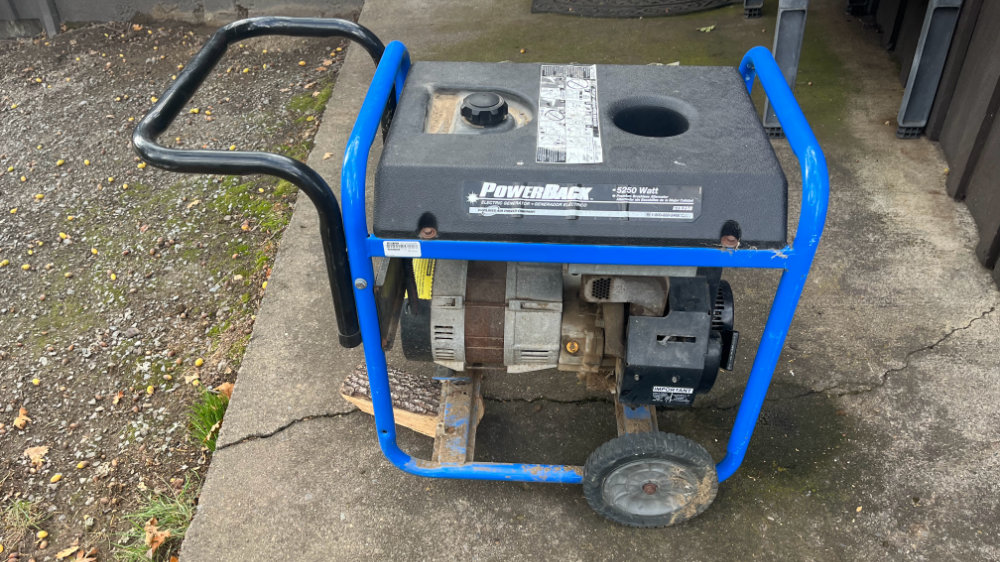Portable generators are devices that convert fuel into electrical energy. They are typically used to provide backup power during power outages or to power devices in remote areas where grid power is not available. Portable generators come in a variety of sizes and power outputs, so it is important to choose the right one for your needs.
How Portable Generators Work
Portable generators work by converting mechanical energy into electrical energy. This is done using an internal combustion engine that drives a generator. The generator is a set of coils of wire that are surrounded by magnets. When the engine spins the magnets, it creates an electric current in the coils. This current is then regulated and passed through outlets on the generator, where it can be used to power appliances and devices.

Types of Portable Generators
There are two main types of portable generators: standard and inverter generators.
- Standard portable generators: Standard portable generators are the most common type of generator. They are typically powered by gasoline or diesel and produce a type of electricity called alternating current (AC). AC electricity is the type of electricity that is used in most homes and businesses.
- Inverter portable generators: Inverter portable generators are more expensive than standard generators, but they offer a number of advantages. Inverter generators produce a type of electricity called modified sine wave (MSW) or pure sine wave (PSW). MSW electricity is sufficient for most appliances and devices, but PSW electricity is required for sensitive electronics such as computers and televisions.
Choosing the Right Portable Generator
When choosing a portable generator, there are a few factors to consider:
- Power output: The power output of a generator is measured in watts. The more watts a generator produces, the more devices it can power. To choose the right generator for your needs, you need to calculate the total wattage of the devices that you want to power.
- Fuel type: Portable generators are typically powered by gasoline, diesel, or propane. Gasoline is the most common fuel type, but it is also the most flammable. Diesel is less flammable than gasoline, but it is also more expensive. Propane is the cleanest burning fuel type, but it is not as widely available as gasoline or diesel.
- Noise level: Portable generators can be noisy. If you plan on using your generator near your home, you may want to choose a quieter model.
- Portability: Portable generators come in a variety of sizes and weights. If you need to move your generator around frequently, you may want to choose a lighter model.
Using a Portable Generator Safely
Portable generators can be dangerous if not used properly. Here are some safety tips:
- Never operate a generator indoors: Generators produce carbon monoxide, a poisonous gas that can be fatal. Only operate a generator outdoors in a well-ventilated area.
- Keep the generator away from flammable materials: Generators can produce sparks that could ignite flammable materials. Keep the generator at least 10 feet away from any flammable materials.
- Ground the generator: Grounding the generator helps to prevent electrical shock. Connect a grounding wire to the generator and to a metal rod that is driven into the ground.
- Use the correct extension cords: Make sure to use extension cords that are rated for the amount of current that the generator will be producing.
- Turn off the generator before refueling: Always turn off the generator and let it cool down before refueling.
Applications for Portable Generators
Portable generators can be used for a variety of purposes, including:
- Powering homes and businesses during power outages: Portable generators can provide backup power to homes and businesses during power outages. This can be especially important for businesses that rely on electricity to operate.
- Powering devices in remote areas: Portable generators can be used to power devices in remote areas where grid power is not available. This can be useful for camping, tailgating, and construction sites.
- Powering construction tools: Portable generators can be used to power construction tools such as saws, hammers, and drills. This can be useful for construction projects that are not near a power source.
- Powering recreational vehicles: Portable generators can be used to power recreational vehicles such as campers and trailers. This allows you to enjoy the amenities of home even when you are off the grid.
Conclusion
Portable generators are a versatile and valuable tool. They can be used to provide backup power, power devices in remote areas, and power construction tools and recreational vehicles. When choosing a portable generator, it is important to consider the power output, fuel type, noise level, and portability of the generator. It is also important to use a portable generator safely.

